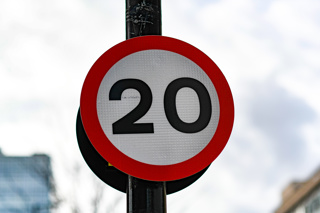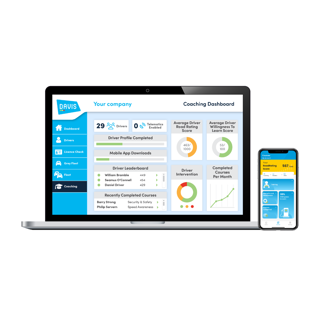Calls for widespread 20mph limits and other measures to protect cyclists grew today, as two in three commuters (66%) said most roads were unfit for cycling in a survey by charity Brake and solicitors Bolt Burdon Kemp.
The survey of 1,550 commuters revealed many would be persuaded to cycle if roads were safer. A third (35%) said they would switch to cycling their commute if the route was less dangerous. A huge 46% would be persuaded to make other local journeys by bike given safer roads.
Nearly half said they cycle on roads already (47%), but two-thirds of these (64%) only do so occasionally. Only one in ten (10%) use their bike as their main form of transport to commute.
The majority of those surveyed said 20mph limits and other safe cycling measures were needed in their area. Only a minority already have widespread 20mph limits (15%) and other safe cycling measures like cycle paths (13%).
Of those who don't already have them, three-quarters (73%) would back widespread 20mph limits and 83% would back measures like cycle paths being introduced in their community.
Brake and Bolt Burdon Kemp are launching a Cycle for life campaign calling for:
• Local authorities to implement widespread 20mph limits in communities to protect cyclists and pedestrians, and more traffic-free and segregated cycle paths on commuter routes and connecting homes and community facilities
• Government to encourage and fund more local authorities to take these steps
• Drivers to slow down to 20mph in communities and look out for cyclists, especially at junctions and on bends
• Employers to play their part in promoting safe cycling, raising awareness about safe driving to protect cyclists, and ensuring commercial vehicles have the latest blind spot devices. Organisations signing up to back the campaign will get guidance on promoting safe cycling
Individuals and organisations can back the campaign at www.brake.org.uk/cycleforlifecampaign.
Julie Townsend, Brake deputy chief executive, said: "It's positive the government is working to encourage cycling to improve health and reduce pollution, but it must also ensure roads are safe for cyclists.
“Widespread 20mph limits and cycle paths where people live and work would encourage more people to cycle, without their lives being threatened by fast traffic. It would also, crucially, help prevent those already cycling from falling victim to devastating crashes.
“This survey shows the huge amount of public support for safe cycling. We're calling on the authorities, employers, and the driving public to act upon this, to enable people to take to their bikes without fear."
The survey found that cycling to work is most common among men (13%, compared to 7% of women) and among those in their late 20s (18% compared to 10% across all ages).
Women are also far more likely than men to never cycle on roads (64% compared to 43%). This may be partly to do with perceptions of risk.
Men are much more likely than women to think roads in their area are mostly safe for cycling (39% compared to 29%) and those in their late 20s are more likely to think this than other age groups (40% compared to 34% across all ages).




















Login to comment
Comments
No comments have been made yet.